 Petzlover
Petzlover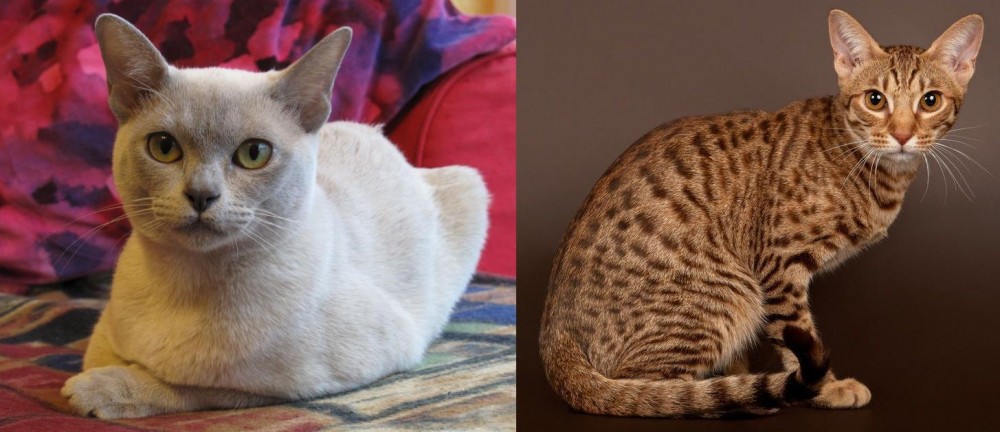 European Burmese is originated from Myanmar but Ocicat is originated from United States. Both European Burmese and Ocicat are having almost same weight. Both European Burmese and Ocicat has same life span. Both European Burmese and Ocicat has same litter size. Both European Burmese and Ocicat requires Low Maintenance.
European Burmese is originated from Myanmar but Ocicat is originated from United States. Both European Burmese and Ocicat are having almost same weight. Both European Burmese and Ocicat has same life span. Both European Burmese and Ocicat has same litter size. Both European Burmese and Ocicat requires Low Maintenance.
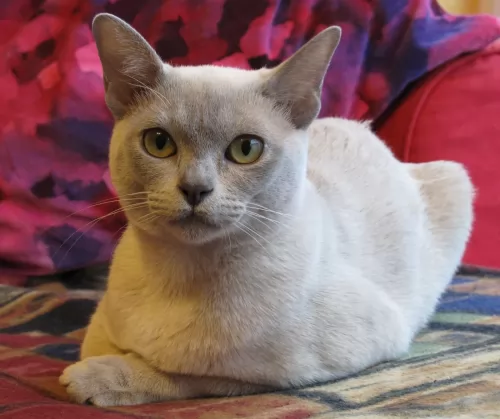 The European Burmese was developed in the 1960s when they were imported to England by British breeders.
The European Burmese was developed in the 1960s when they were imported to England by British breeders.
They were then crossed with red-point Siamese as well as British Shorthairs to expand the gene pool and number of coat colors.
In 1994, the cat was recognized by the Cat Fanciers Association and later by the Canadian Cat Association as well as the Cat Fanciers Federation and others as well.
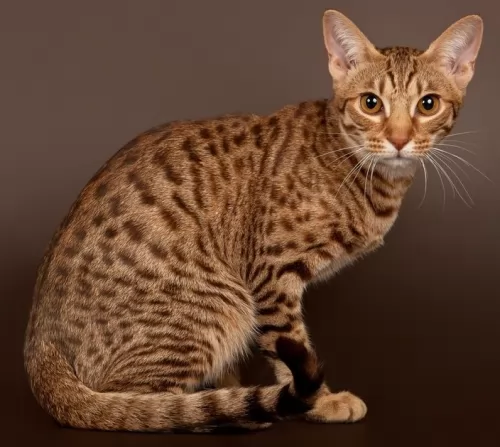 Virginia Daly was the first breeder of Ocicats, hailing from Michigan. She wanted to breed an Abyssinian-pointed Siamese in 1964 and the first kittens looked to be Abyssinian.
Virginia Daly was the first breeder of Ocicats, hailing from Michigan. She wanted to breed an Abyssinian-pointed Siamese in 1964 and the first kittens looked to be Abyssinian.
With the next litter, the Abyssinian-pointed Siamese and a spotted kitten, nicknamed an Ocicat. Further breedings produced more spotted kittens and became the basis of the Ocicat.
A breeding program was started for Siamese to Abyssinian, and the kittens bred to Siamese. Later the American Shorthair was introduced to the Ocicat and this brought in bigger boning as well as adding silver to the 6 colors of the Ocicat.
It was during the 1980s that the cat was accepted for registration in The Cat Fanciers' Association.
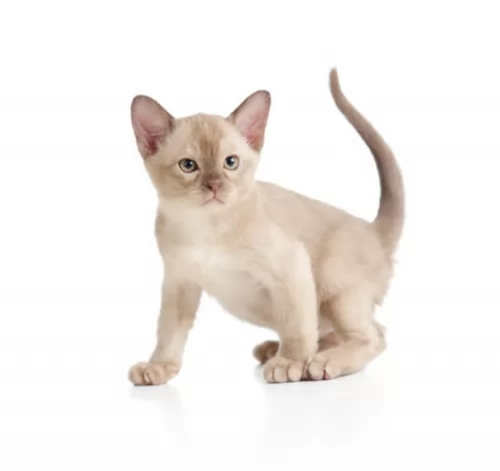 Your beautiful European Burmese cat is a small to medium-sized cat and both males and females will weigh between 3 and 5kg.
Your beautiful European Burmese cat is a small to medium-sized cat and both males and females will weigh between 3 and 5kg.
The cat’s coat is short and glossy and it comes in a number of different colors such as white, brown, cream, blue, red and tortoisehell.The cat has large, expressive eyes that are a yellow or amber shade.
Your European Burmese has a silky short coat and the coat will also only need to be brushed once a week to keep it in tip-top condition.
The European Burmese is a very affectionate, loyal ad intelligent cat, loving the companionhip they share with their human family.
They’re a great pet for families as they’re active and playful. They are also a cat breed that likes to bond with one particular family member more than others.
They’re also inclined to be lap cats, grabbing each opportunity to be stroked and petted. They will also be quite willing to become friends with other pets in the home and don’t like to be left alone for a long time.
They like having other pets around to keep them company and can become withdrawn if constantly left on their own.
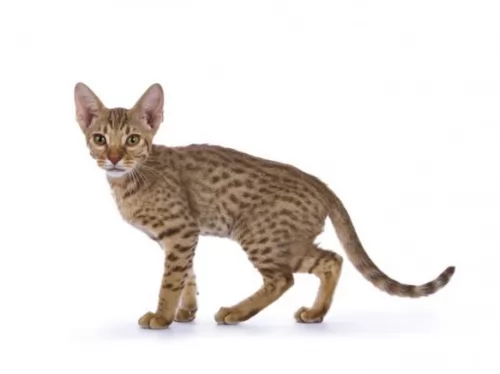 Ocicats, with their wedge-shaped heads, are strong, large cats with muscular legs that have striped markings. The cat can weight between 4 and 7kg. The ears are large and pointed.
Ocicats, with their wedge-shaped heads, are strong, large cats with muscular legs that have striped markings. The cat can weight between 4 and 7kg. The ears are large and pointed.
The cat has almond-shaped eyes. The fur has dark spots and there are many color variants that are approved by the major cat registries. The standard colors for the cat are chocolate, cinnamon and tawny.
These large cats have got personality traits from both cats – the Siamese and the Abyssinian. They are friendly, playful, and sociable cats, making excellent family pets, getting on well with children and other pets. Those who have owned them say owning such a cat is similar to owning a dog as they can be taught basic commands and tricks and even walk on a leash.
They are even known to swim with you. They’re cats that crave the attention of their human owners, but bond specifically with one person. It won’t do at all well in a household where it is left alone for long periods of time.
It's an intelligent cat and will most certainly need toys and a lifestyle that is stimulating.
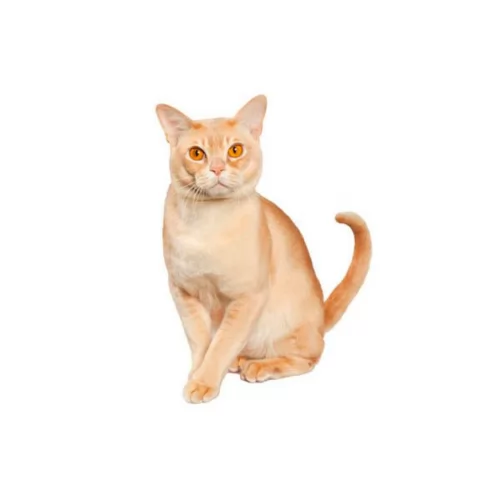 Your European Burmese has a sweet disposition and it is a loving, companionable cat. They enjoy the company of their human owners as well as other pets.
Your European Burmese has a sweet disposition and it is a loving, companionable cat. They enjoy the company of their human owners as well as other pets.
They can be quite vocal too and they don’t like being left alone. If you work all day, it will be a good idea to have another pet as a companion for the European Burmese.
The European Burmese loves to play and is a fun-loving, active, social cat. While they love their human family, they may not make the greatest pet for an inactive, single person as these cats actually seek out companionship.
A person unable to involve themselves with this cat, may well find it becoming depressed. These are cats that require a lot of interaction and attention, craving the attention of their human families.
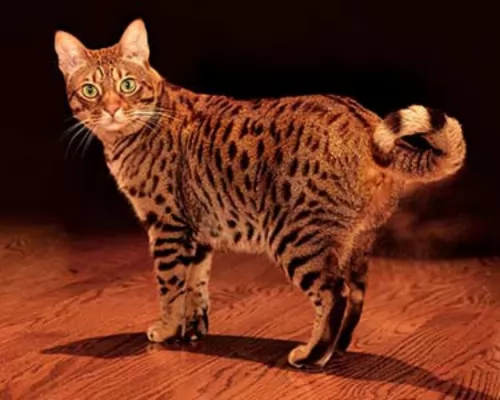 The Ocicat is a friendly, non-aggressive cat that is devoted to his human family. It’s a cat that thrives on being around people and won’t relish being left alone for long periods of time.
The Ocicat is a friendly, non-aggressive cat that is devoted to his human family. It’s a cat that thrives on being around people and won’t relish being left alone for long periods of time.
The largish cat is intelligent and easily trainable. He loves toys and it will be good to buy him some toys that require him thinking a little bit.
Highly energetic, he’ll love nothing more than for you to become involved in his games. Give him the attention he craves and he’ll become your best friend.
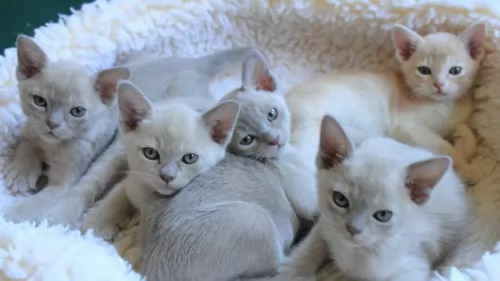 The European Burmese is a fairly healthy cat and is unlikely to cost you a lot in terms of vets fees.
The European Burmese is a fairly healthy cat and is unlikely to cost you a lot in terms of vets fees.
Just like with other cats, some of the common cat illnesses include developing diabetes mellitus. There have been some of these cats that ave been known to suffer from Feline Orofacial Pain Syndrome (FOPS).
It is a disease related to the teeth. Teeth problems are a common ailment with cats. With this particular problem, there is an unusual amount of pain when the cat's adult teeth begin to emerge. Your cat will be displaying a lot of licking and chewing motions. The symptoms do however go away once the adult teeth come in.
The cat will in all likelihood need to see the vet for pain medication and other treatments such as a potassium supplement.
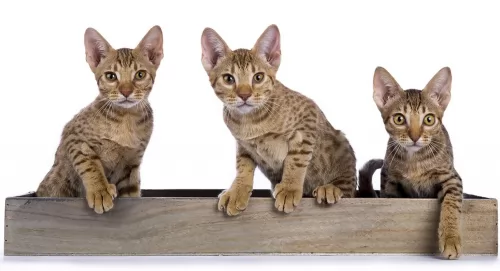 Diet is a crucial part of being a healthy cat, There are many excellent commercially manufactured cat foods on the market and your cat might prefer the wet- or dry type of cat food.
Diet is a crucial part of being a healthy cat, There are many excellent commercially manufactured cat foods on the market and your cat might prefer the wet- or dry type of cat food.
The idea is to choose the highest quality cat food that is packed with meat and protein as your cat is a carnivore. One good way to choose a good cat food is to read the ingredients and make sure that the first ingredients are meat.
He wants chicken, tuna, liver and pheasant in his diet. Make sure that the food also contains taurine as this is an essential amino acid that every cat must have.
If in any doubt, speak to your vet as cats require certain vitamins and minerals to remain healthy. Always ensure a fresh supply of cool drinking water.
Your cat requires being vaccinated and dewormed.
Get to know a good vet in your area so that if your cat is sick, you don't have to waste precious time searching for a vet.
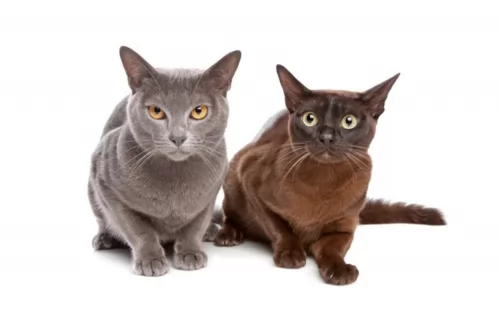 Because the European Burmese is a very affectionate, loyal cat, and because they thrive on the companionship of their human family, you owe it to him to provide him with consistent companionship. They are friendly cats and will be amicable to visitors to the home too.
Because the European Burmese is a very affectionate, loyal cat, and because they thrive on the companionship of their human family, you owe it to him to provide him with consistent companionship. They are friendly cats and will be amicable to visitors to the home too.
Scratching is a natural behavior of pets so instead of becoming angry with your cat when he scratches on your furniture, provide him with a scratching post.
You can also learn how to carefully clip your cat's nails, otherwise a professional cat groomer can do it for you.
It’s not always easy keeping a cat indoors and that is why neutering or spaying becomes important to avoid unwanted kittens. It makes your European Burmese a more balanced cat and it has a host of health benefits too.
It can’t be stressed enough how important good food is for the health of people and animals. The European Burmese needs top quality food high in proteins and meat to remain healthy.
If you feed your cat human food or food high in carbs, expect to spend a lot on vet fees.
Make sure your pet enjoys his food but that it is also nutritious and in the right portions to avoid obesity.
Kittens will eat 4 bowls of food a day and then progress to 2 bowls of food after the cat turns one year of age.
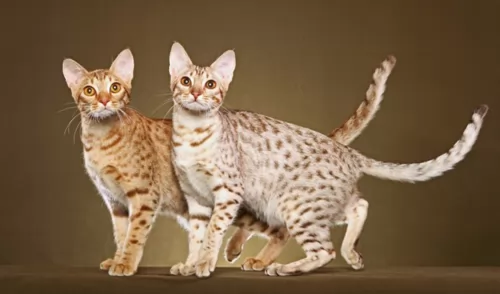 Provide your Ocicat with companionship as these are cats that can’t be left for hours on their own.
Provide your Ocicat with companionship as these are cats that can’t be left for hours on their own.
Provide your Ocicat with a litterbox that is kept clean. Your ocicat’s dropping must be regularly raked up out of the litter box sand and removed. A cat won’t use a dirty litterbox.
Treat your Ocicat for parasites. In fact, treating parasites isn’t a once-off treatment but ongoing. You can consult with your veterinarian for advice on the best and safest way to treat your pet for worms, ticks, fleas, and mites.
Brush your Ocicat’s fur once a week. They have short fur so they are fairly low maintenance. You can use a rubber hand brush and you can even wipe the fur down with a damp cloth to remove dust. He will have to have his claws trimmed.
Nobody should buy a pet and then do as little as possible for it. Your Ocicat’s going to need daily exercise as well as mental stimulation and he will require this through interaction with his human family. Buy him stimulating toys to keep him busy, play games with him and buy a cat leash so you can take him on walks outdoors for a bit of sunlight.